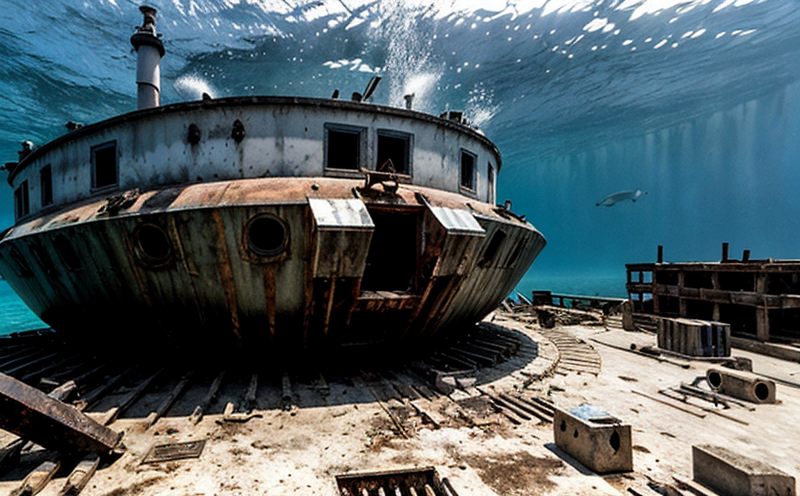Resistance of Materials to Mechanical Degradation in Marine Conditions
Unlocking the Secrets of Material Resilience Understanding Resistance to Mechanical Degradation in Marine Conditions
As businesses continue to push the boundaries of innovation and exploration, the need for reliable materials that can withstand extreme conditions has never been more pressing. In the marine environment, where water, salt, and temperature fluctuations combine to create a perfect storm of stressors, materials are often subjected to unprecedented levels of mechanical degradation. This is where Resistance of Materials to Mechanical Degradation in Marine Conditions comes into play a critical laboratory service that helps businesses ensure their products can withstand the rigors of marine conditions.
At Eurolab, we understand the importance of material resilience in todays fast-paced and competitive market. Our state-of-the-art laboratory provides an exhaustive evaluation of your materials ability to resist mechanical degradation under simulated marine conditions. By harnessing the power of cutting-edge technology and expert analysis, our team delivers actionable insights that enable businesses to make informed decisions about their product development, ensuring they meet the ever-tightening demands of regulatory bodies and market trends.
What is Resistance of Materials to Mechanical Degradation in Marine Conditions?
Resistance of Materials to Mechanical Degradation in Marine Conditions involves simulating the stresses and conditions found in marine environments on your materials. This includes exposure to saltwater, high humidity, temperature fluctuations, and mechanical loading, all designed to mimic the real-world stresses that materials are subjected to when used in marine applications.
The test methodology is based on internationally recognized standards (e.g., ASTM G154) and involves a multi-stage evaluation process
Initial Assessment A thorough examination of your materials composition, structure, and physical properties.
Environmental Simulation Exposure to controlled conditions that mimic the stresses found in marine environments, including temperature fluctuations, humidity levels, and saltwater exposure.
Mechanical Loading Application of mechanical stressors, such as tensile loading or fatigue testing, to evaluate your materials resistance to degradation under load.
Evaluation and Analysis Detailed analysis of the test results, providing a comprehensive understanding of your materials performance in marine conditions.
Why is Resistance of Materials to Mechanical Degradation in Marine Conditions Essential for Businesses?
Our laboratory service provides numerous benefits that can help businesses achieve their goals
Improved Product Reliability By simulating real-world stresses on your materials, you can identify potential weaknesses and develop strategies to mitigate them.
Enhanced Regulatory Compliance Meet the ever-tightening demands of regulatory bodies by demonstrating compliance with international standards for marine materials.
Increased Confidence in Material Selection Make informed decisions about material selection by leveraging our expert analysis and actionable insights.
Reduced Development Time Identify potential issues early on, reducing the need for costly redesigns or rework.
Key Benefits of Using Resistance of Materials to Mechanical Degradation in Marine Conditions
Here are some key benefits of utilizing our laboratory service
Informed Material Selection Make data-driven decisions about your material selection by understanding how they will perform under marine conditions.
Predictive Maintenance Strategies Identify potential areas for improvement and implement predictive maintenance strategies to minimize downtime and costs.
Increased Product Lifespan Develop materials that can withstand the stresses of marine environments, ensuring a longer lifespan and reduced need for replacement.
Reduced Risk Minimize the risk of material failure by understanding how they will respond under simulated marine conditions.
Frequently Asked Questions (FAQs)
Q What types of materials can be tested using Resistance of Materials to Mechanical Degradation in Marine Conditions?
A Our laboratory service is suitable for a wide range of materials, including metals, polymers, ceramics, and composites.
Q How long does the testing process typically take?
A The duration of our testing services varies depending on the specific requirements of your project. However, we can typically provide results within 2-6 weeks.
Q What is included in the test report?
A Our comprehensive test reports include detailed analysis and recommendations for material improvement or selection, as well as a summary of the test methodology used.
Q Are your testing services accredited to any international standards?
A Yes, our laboratory operates in accordance with recognized international standards (e.g., ISO/IEC 17025) and adheres to Good Laboratory Practice (GLP).
Conclusion
Resistance of Materials to Mechanical Degradation in Marine Conditions is a critical laboratory service that helps businesses ensure their products can withstand the stresses of marine environments. By leveraging our state-of-the-art facilities, expert analysis, and internationally recognized standards, Eurolab provides actionable insights that enable informed decision-making about material selection and development.
Dont let your business suffer from the consequences of material failure. Choose Eurolab for a comprehensive evaluation of your materials resilience under simulated marine conditions. Contact us today to learn more about our laboratory services and how we can help you unlock the full potential of your products.




